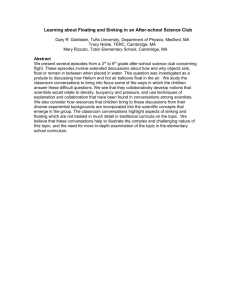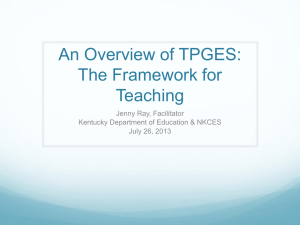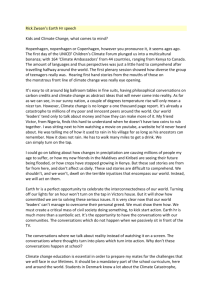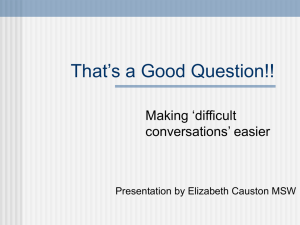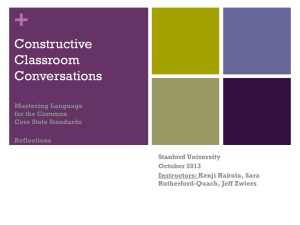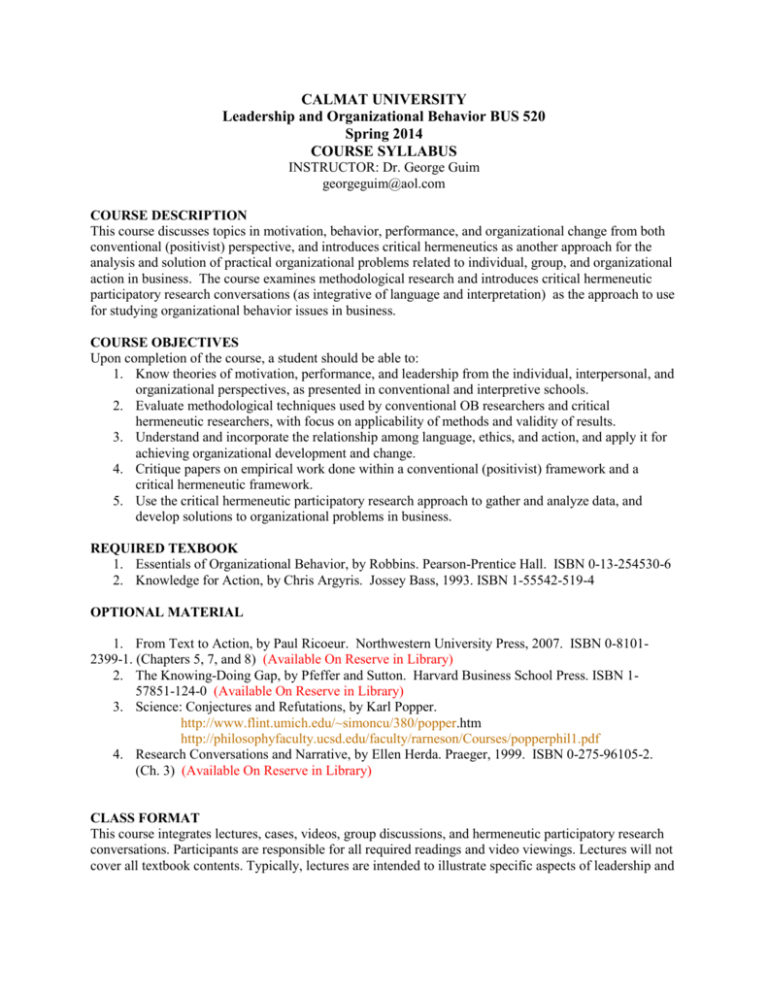
CALMAT UNIVERSITY
Leadership and Organizational Behavior BUS 520
Spring 2014
COURSE SYLLABUS
INSTRUCTOR: Dr. George Guim
georgeguim@aol.com
COURSE DESCRIPTION
This course discusses topics in motivation, behavior, performance, and organizational change from both
conventional (positivist) perspective, and introduces critical hermeneutics as another approach for the
analysis and solution of practical organizational problems related to individual, group, and organizational
action in business. The course examines methodological research and introduces critical hermeneutic
participatory research conversations (as integrative of language and interpretation) as the approach to use
for studying organizational behavior issues in business.
COURSE OBJECTIVES
Upon completion of the course, a student should be able to:
1. Know theories of motivation, performance, and leadership from the individual, interpersonal, and
organizational perspectives, as presented in conventional and interpretive schools.
2. Evaluate methodological techniques used by conventional OB researchers and critical
hermeneutic researchers, with focus on applicability of methods and validity of results.
3. Understand and incorporate the relationship among language, ethics, and action, and apply it for
achieving organizational development and change.
4. Critique papers on empirical work done within a conventional (positivist) framework and a
critical hermeneutic framework.
5. Use the critical hermeneutic participatory research approach to gather and analyze data, and
develop solutions to organizational problems in business.
REQUIRED TEXBOOK
1. Essentials of Organizational Behavior, by Robbins. Pearson-Prentice Hall. ISBN 0-13-254530-6
2. Knowledge for Action, by Chris Argyris. Jossey Bass, 1993. ISBN 1-55542-519-4
OPTIONAL MATERIAL
1. From Text to Action, by Paul Ricoeur. Northwestern University Press, 2007. ISBN 0-81012399-1. (Chapters 5, 7, and 8) (Available On Reserve in Library)
2. The Knowing-Doing Gap, by Pfeffer and Sutton. Harvard Business School Press. ISBN 157851-124-0 (Available On Reserve in Library)
3. Science: Conjectures and Refutations, by Karl Popper.
http://www.flint.umich.edu/~simoncu/380/popper.htm
http://philosophyfaculty.ucsd.edu/faculty/rarneson/Courses/popperphil1.pdf
4. Research Conversations and Narrative, by Ellen Herda. Praeger, 1999. ISBN 0-275-96105-2.
(Ch. 3) (Available On Reserve in Library)
CLASS FORMAT
This course integrates lectures, cases, videos, group discussions, and hermeneutic participatory research
conversations. Participants are responsible for all required readings and video viewings. Lectures will not
cover all textbook contents. Typically, lectures are intended to illustrate specific aspects of leadership and
organizational conduct and to introduce concepts for later applications.
CLASS PARTICIPATION
This course is designed to foster discussion and the exchange of ideas. The key to this approach is that
participants prepare before class and arrive willing to share their viewpoints and personal experiences.
Evaluation is based on each participant’s positive contribution to class discussion on a regular basis.
Quality of contributions will prevail over quantity.
Laptops may be used during the class period only to consult your notes or for note-taking purposes. Using
the Internet for e-mailing or browsing during any session is considered as a severe lack of respect towards
the instructors and classmates.
ATTENDANCE
Effective classroom learning depends on your thorough preparation and active participation. Attendance
is required. If you are unable to attend class for any reason, you are expected to notify the following:
georgeguim@aol.com (your instructor)
eric.tao@calmat.us
EVALUATION
Activity
Attendance and participation
Midterm Quiz (Textbook,
Ricoeur, Knowledge for Action,
and Knowing-Doing Gap)
Critique of papers on empirical
work done (Ricoeur, Knowledge
for Action, and Knowing-Doing
Gap)
Final Project using critical
hermeneutic participatory
research conversations (Ricoeur,
Herda, and Knowledge for
Action)
Points
100
100
Weight
10%
20%
CLO
DUE
1-4
F2F 5
100
30%
1-4
F2F 6
100
40%
1-5
F2F 8
SCHEDULE OF TOPICS AND ACTIVITIES
Week
1
2
3
4
5
6
7
8
OB Textbook (Part 1 and 2)
Conjectures and Refutations, by Karl Popper
OB Textbook (Part 3)
FTTA Chs. 4 and 7
Knowledge for Action (Part 1 and 2)
FTTA Ch. 8
Knowing-Doing Gap (Chs. TBA)
Research Conversations (Part III)
Review
Homework Assigment/ Quiz
Group Conversations and summary of readings.
Group Conversations and summary of readings.
Group Conversations and summary of readings.
Midterm Quiz (Textbook, FTTA Chs. 4 ^ 7, and
Knowledge for Action)
Paper on Methods (Dissertation and Guim’s report)
Research Report on topic of choice using critical
hermeneutics participatory research conversations.

